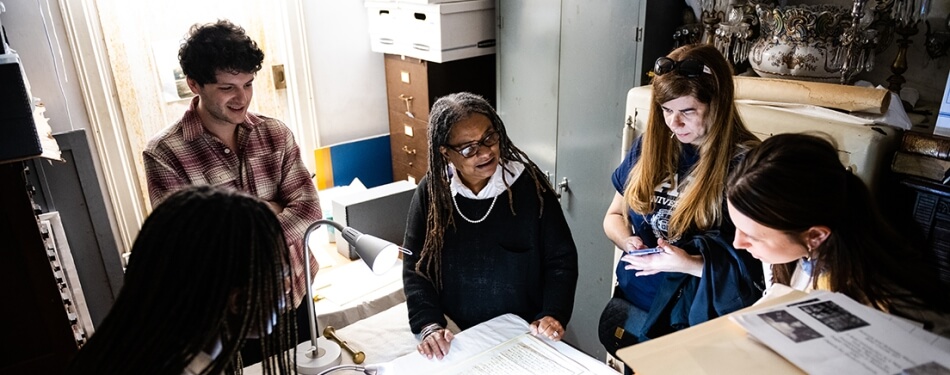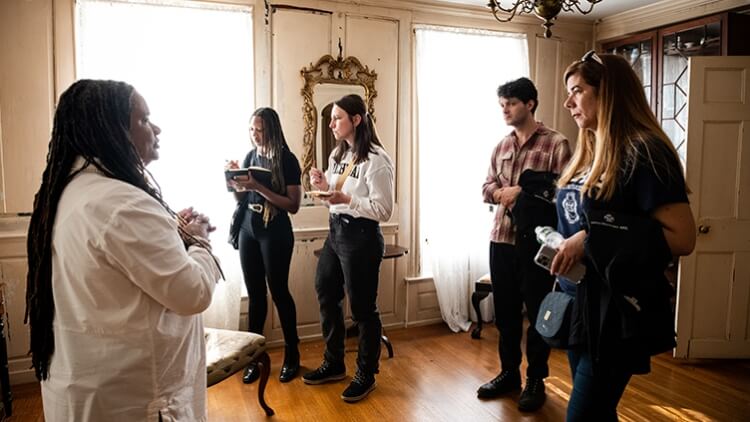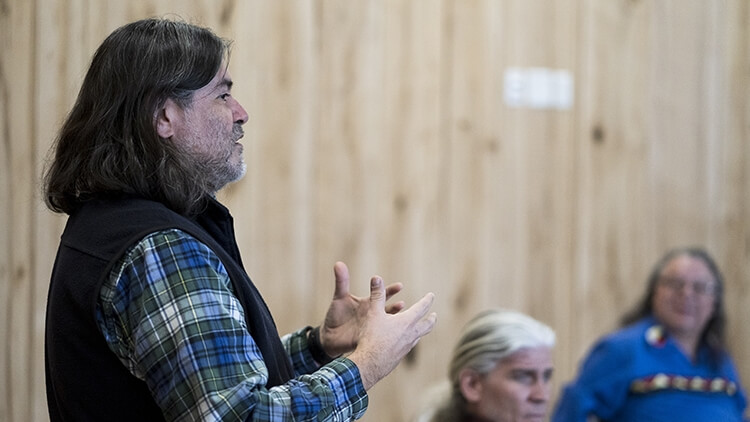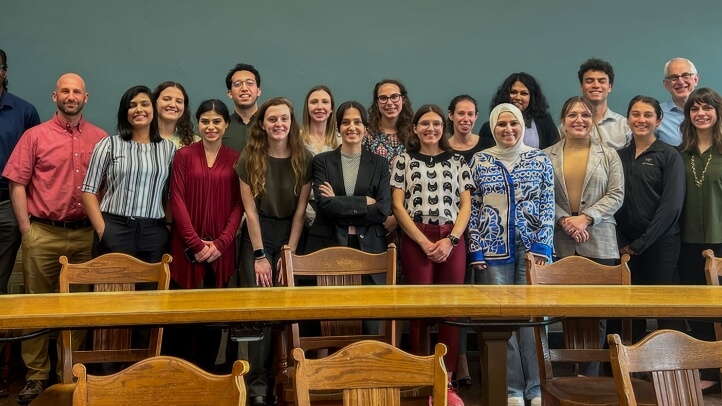About PSI
Launched in 2017, PSI is a collection of courses that brings together students and faculty from law and other disciplines to actively apply creative problem solving, collaboration, and design thinking skills to complex, pressing challenges in a classroom setting.
PSI classes allow students to learn about topics such as sustainable food systems, connected and automated vehicles, human trafficking, “fake news,” firearm violence, and new music business models. At the same time, these classes allow students to learn about and apply tools, such as problem reframing, practicing empathy, prototyping, and more, that they will continue to apply in other classes, collaborative efforts, and the workplace.
Students and faculty have joined PSI from a range of U-M units, including Nursing, the Campus Farm, Engineering, History of Art, Information, Sociology, SEAS, Medicine, and Business.
Students in PSI Classes
- Develop creative problem-solving tools
- Lend their expertise and skills to a multidisciplinary team
- Learn human-centered design thinking skills
- Conduct research on, and engage in, advancing solutions to real-world challenges
- Collaborate with a range of U-M graduate and professional students and faculty experts
PSI Classes at a Glance
- Are open to all U-M graduate and professional students, fostering cross-campus collaboration
- Combine substantive learning and hands-on skill development
- Change every term, offering new challenges and teaching teams
Registering for PSI Classes
PSI will be on hiatus for Fall 2025. Information about future offerings will be posted on this page.
Challenge yourself with a Problem Solving Initiative class. Take a multi-disciplinary approach to real world problems.
PSI courses are 3-credit classes held at the Law School every Fall and Winter semester. Student teams use design thinking to research and build replicable, scalable, and disruptive solutions to real world challenges.
Michigan Law students use the Class Bidding process to select and register for PSI courses.
PSI courses are “professor pick,” which involve an application, selection, and waitlist process. To request a PSI course or for information on registering please email [email protected] or select REGISTER and submit the form. Simply fill out the form, submit it, and wait for your registration to be approved!
Please note: We use the “professor pick” process only as a measure to ensure we have enough diversity of disciplines to make the course a true PSI experience.
UM Graduate and Professional Students Outside the Law School
Begin by consulting with your home unit’s graduate or academic advisor to learn about taking courses for credit outside of your home unit. PSI courses are cross-listed as EAS 731, ECON 741, EDUC 717, HS 741, LAW 741, PUBHLTH 741, PUBPOL 710, SI 605, SW 741. The PSI Human Trafficking Lab is also approved as an IPE course.
Recent Course Offerings
Defending Democracy: The MI Election Process in 2024
Instructors: Andrew Buchsbaum (Law School) and Lisa Disch (LSA)
Michigan, a leader in voting reform, is also a target for efforts to discredit election processes. Students will conduct a post-mortem on the November 2024 election process in Michigan, interviewing key players, doing legal analysis of election law, and reviewing documentary evidence to assess the entire process—from ballot casting, through counting, to election certification.
Working with Voters Not Politicians and other election reform organizations, they will issue a report on problems that emerged and those that were averted by recent democratic reforms.
Comprehensive Solutions for Space Debris Removal
Instructors: Donald Moore (Law School) and Oliver Jia-Richards (Department of Aerospace Engineering)
Increasing space debris and space objects will result in an unsustainable space environment. Technological, financial, regulatory, and geopolitical solutions must work together to remove space debris.
This Law School Problem Solving Initiative (PSI) class is for all U-M graduates and professional students, especially law, engineering, and business. Multi-disciplinary teams will develop holistic solutions for space debris removal. Team-based solutions will be prepared as white-papers and presented in an end-of-semester panel format together with government and industry participants.




